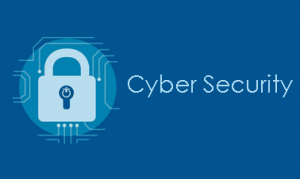 Every day, people are victimized by cybercriminals while online banking transactions, online shopping, online money transfer, etc. The sad truth is that very few criminals can be described as experts. The lack of Cyber Safety and Security awareness make most of the people an easy target for anyone trying to hack into their personal information. The estimated cybercrime cost is over $400 billion per year of the global economy. As a result, most of the companies and organizations of the world, including the Indian Government, are emphasizing cybersecurity a top priority for the coming year and are setting up standards for cyber security protocol as well as creating cyber security awareness in society. Cyber Security Post Graduate program offered through GTU-GSET help students to understand modern information and system protection technology and methods. This AICTE approved Post Graduate ME course of two years duration has an intake of 30 students per year and the admissions are done through ACPC, Gujarat. It involves the learning of cybersecurity tools and techniques, services, systems, programming methodologies, and the best-designed approach. The students can be able to learn about the detection, prevention, and mitigation of cybercrime.
Every day, people are victimized by cybercriminals while online banking transactions, online shopping, online money transfer, etc. The sad truth is that very few criminals can be described as experts. The lack of Cyber Safety and Security awareness make most of the people an easy target for anyone trying to hack into their personal information. The estimated cybercrime cost is over $400 billion per year of the global economy. As a result, most of the companies and organizations of the world, including the Indian Government, are emphasizing cybersecurity a top priority for the coming year and are setting up standards for cyber security protocol as well as creating cyber security awareness in society. Cyber Security Post Graduate program offered through GTU-GSET help students to understand modern information and system protection technology and methods. This AICTE approved Post Graduate ME course of two years duration has an intake of 30 students per year and the admissions are done through ACPC, Gujarat. It involves the learning of cybersecurity tools and techniques, services, systems, programming methodologies, and the best-designed approach. The students can be able to learn about the detection, prevention, and mitigation of cybercrime.
Career Opportunities in Cybersecurity
 Cyber Security as a career choice covering the various types of roles, the skill sets required,
and the career roadmap for cybersecurity professionals. GSET provides opportunities to the
students to work on the real-time problems during their learning duration with the help of a
strong linkage with various state/central government security agencies and private
companies. The students are encouraged to attend and explore GTU- International
Experience Program (IEP) in the field of cybersecurity such as Cyber Security Summer
Training Program at Tel Aviv University, Israel. The institute provides the support for skill
development, training, and placement in various esteemed industries and organization such
as Deloitte India, KPMG India, and National Technical Research Organisation (NTRO), Net-
Square Solutions Pvt. Ltd., BlueInfy Solutions Pvt. Ltd., TrasVista, IG Global Business Services
India, Cloud24x7 Pvt. Ltd., Sophos Technologies Pvt. Ltd., Alterego Technology Ltd., etc.
Cyber Security as a career choice covering the various types of roles, the skill sets required,
and the career roadmap for cybersecurity professionals. GSET provides opportunities to the
students to work on the real-time problems during their learning duration with the help of a
strong linkage with various state/central government security agencies and private
companies. The students are encouraged to attend and explore GTU- International
Experience Program (IEP) in the field of cybersecurity such as Cyber Security Summer
Training Program at Tel Aviv University, Israel. The institute provides the support for skill
development, training, and placement in various esteemed industries and organization such
as Deloitte India, KPMG India, and National Technical Research Organisation (NTRO), Net-
Square Solutions Pvt. Ltd., BlueInfy Solutions Pvt. Ltd., TrasVista, IG Global Business Services
India, Cloud24x7 Pvt. Ltd., Sophos Technologies Pvt. Ltd., Alterego Technology Ltd., etc.
Program Outcomes
- An ability to independently carry out research /investigation and development work to solve practical problems.
- An ability to write the present substantial technical report/documents.
- Students should be able to demonstrate a degree of mastery over the area as per the specialization of the program. The mastery should be at a level higher than the requirements in the appropriate bachelor program.
Program Specific Outcomes
- To understand and analyze the various cyber-attacks, cyber laws, ethical hacking concepts, defending practice of cyber security, and digital forensics techniques.
- Identify, analyze and develop software and hardware solutions for complex problems in cyber security domain.
- Apply advanced knowledge to identify research challenges, and contribute individually or in team to resolve Cyber Security and Digital Forensics issues.
Program Educational Objectives
- Impart knowledge/skill in the areas of cyber security, digital forensics, cyber laws and related disciplines.
- Work in reputed computer and IT security, Government and Research organizations or as an entrepreneur to build cyber safe nation.
- Able to cope with cyber security challenges through continuing education, increased responsibility, team work and ethical code of conduct.
Cyber Security and Digital Forensics Laboratory

The Cyber Security and Digital Forensics Laboratory is a state-of-the-art, dedicated space in which students can safely engage in cyber related activities, including malware detection and analysis, and penetration testing. It is equipped with everything required to secure and analyze digital evidence. Cybercrime and forensic investigations are simulated in a safe, controlled environment without possible impact to other campus networks. This lab is provided to all ME Cyber Security students to undertake coursework and project work where they can enhance their research skill in the field of Cyber Security.
High Performance Computing (HPC) Laboratory:
High performance computing laboratory facilities is established with PARAM Shavak Supercomputer and high-end computer systems to create a culture of research and innovation for students and researchers. It is useful to execute the various projects of AI and machine learning, deep learning, network traffic analysis, digital forensic investigation, log analysis, electronic design automation, blockchain technology based research projects, etc.
Network Research Laboratory:
The objective of network research laboratory is to pursue the research in the various area of computer communications and networks. Students can able to perform various experiments on virtualization, network measurement and dissemination, etc. to explore the knowledge of network communication systems and security.
Vulnerability Assessment and Penetration Testing (VAPT) Laboratory:
The VAPT laboratory is aim to develop to provide the facilities of attack defense lab to the students. Students can perform various experiments of web application security, operating system security, vulnerability assessment of computer network, pentesting and Wi-Fi security, programming practices for various pentesting methodologies, etc.
| Subject code | Branch code | Subject Name | Category | Semester | L | T | P | Credit | E | M | I | V | Total Marks |
|---|---|---|---|---|---|---|---|---|---|---|---|---|---|
| 3700001 | 59 | English for Research Paper Writing | Audit Course | 1 | 2 | 0 | 0 | 0 | 50 | 0 | 0 | 0 | 50 |
| 3700005 | 59 | Constitution of India | Audit Course | 1 | 2 | 0 | 0 | 0 | 50 | 0 | 0 | 0 | 50 |
| 3710001 | 59 | Research Methodology and IPR | MLC | 1 | 1 | 0 | 2 | 2 | 0 | 0 | 20 | 80 | 100 |
| 3715901 | 59 | Mathematical Foundation for Cyber Security | Core I | 1 | 3 | 0 | 2 | 4 | 70 | 30 | 20 | 30 | 150 |
| 3715903 | 59 | Introduction to Cryptography | Program Elective I | 1 | 3 | 0 | 2 | 4 | 70 | 30 | 20 | 30 | 150 |
| 3715905 | 59 | Cyber Crimes, Ethics and Laws | Program Elective II | 1 | 3 | 0 | 2 | 4 | 70 | 30 | 20 | 30 | 150 |
| 3715906 | 59 | Cyber Security: Administration and Management | Program Elective II | 1 | 3 | 0 | 2 | 4 | 70 | 30 | 20 | 30 | 150 |
| 3715907 | 59 | Defense Programming in Python | Core II | 1 | 3 | 0 | 2 | 4 | 70 | 30 | 20 | 30 | 150 |
| 3715908 | 59 | Digital Forensic | Program Elective I | 1 | 3 | 0 | 2 | 4 | 70 | 30 | 20 | 30 | 150 |
| 3715909 | 59 | Intrusion Detection | Program Elective I | 1 | 3 | 0 | 2 | 4 | 70 | 30 | 20 | 30 | 150 |
| 3715910 | 59 | Secure Software Design and Enterprise Computing | Program Elective II | 1 | 3 | 0 | 2 | 4 | 70 | 30 | 20 | 30 | 150 |
| 3700001 | 59 | English for Research Paper Writing | Audit Course | 2 | 2 | 0 | 0 | 0 | 50 | 0 | 0 | 0 | 50 |
| 3700005 | 59 | Constitution of India | Audit Course | 2 | 2 | 0 | 0 | 0 | 50 | 0 | 0 | 0 | 50 |
| 3720001 | 59 | Mini Project with Seminar | Core | 2 | 0 | 0 | 4 | 2 | 0 | 0 | 100 | 0 | 100 |
| 3722323 | 59 | Information Theory & Coding | Program Elective III | 2 | 3 | 0 | 2 | 4 | 70 | 30 | 20 | 30 | 150 |
| 3725611 | 59 | Steganography & Digital Watermarking | Program Elective III | 2 | 3 | 0 | 2 | 4 | 70 | 30 | 20 | 30 | 150 |
| 3725902 | 59 | Internetworking and security | Program Elective IV | 2 | 3 | 0 | 2 | 4 | 70 | 30 | 20 | 30 | 150 |
| 3725903 | 59 | Ethical Hacking | Program Elective IV | 2 | 3 | 0 | 2 | 4 | 70 | 30 | 20 | 30 | 150 |
| 3725904 | 59 | Web and Database Security | Program Elective III | 2 | 3 | 0 | 2 | 4 | 70 | 30 | 20 | 30 | 150 |
| 3725905 | 59 | Security Assessment and Risk Analysis | Program Elective IV | 2 | 3 | 0 | 2 | 4 | 70 | 30 | 20 | 30 | 150 |
| 3725908 | 59 | Malware Analysis | Core IV | 2 | 3 | 0 | 2 | 4 | 70 | 30 | 20 | 30 | 150 |
| 3725910 | 59 | Operating system and Host Security | Core III | 2 | 3 | 0 | 2 | 4 | 70 | 30 | 20 | 30 | 150 |
| 3730002 | 59 | Internal Review 1 | Internal Review 1 | 3 | 0 | 0 | 4 | 2 | 0 | 0 | 100 | 0 | 100 |
| 3730003 | 59 | Dissertation Phase I | Dissertation | 3 | 0 | 0 | 16 | 8 | 0 | 0 | 0 | 100 | 100 |
| 3730005 | 59 | Business Analytics | Open Elective | 3 | 3 | 0 | 0 | 3 | 70 | 30 | 0 | 0 | 100 |
| 3730006 | 59 | Industrial Safety | Open Elective | 3 | 3 | 0 | 0 | 3 | 70 | 30 | 0 | 0 | 100 |
| 3730007 | 59 | Operation Research | Open Elective | 3 | 3 | 0 | 0 | 3 | 70 | 30 | 0 | 0 | 100 |
| 3735903 | 59 | Advance Algorithms | Program Elective V | 3 | 3 | 0 | 0 | 3 | 70 | 30 | 0 | 0 | 100 |
| 3735904 | 59 | Machine Learning | Program Elective V | 3 | 3 | 0 | 0 | 3 | 70 | 30 | 0 | 0 | 100 |
| 3735905 | 59 | Mobile and Wireless Communication Security | Program Elective V | 3 | 3 | 0 | 0 | 3 | 70 | 30 | 0 | 0 | 100 |
| 3740001 | 59 | Internal Review - 2 | Dissertation | 4 | 0 | 0 | 4 | 2 | 0 | 0 | 100 | 0 | 100 |
| 3740002 | 59 | Dissertation Phase II | Dissertation | 4 | 0 | 0 | 28 | 14 | 0 | 0 | 0 | 100 | 100 |
| Subject code | Branch code | Subject Name | Category | Semester | L | T | P | Credit | E | M | I | V | Total Marks |
|---|---|---|---|---|---|---|---|---|---|---|---|---|---|
| 3700004 | 59 | Value Education | Audit | 1 | 2 | 0 | 0 | 0 | 50 | 0 | 0 | 0 | 50 |
| 3710001 | 59 | Research Methodology and IPR | MLC | 1 | 1 | 0 | 2 | 2 | 0 | 0 | 20 | 80 | 100 |
| 4715901 | 59 | Cyber Law, Policies and Compliance | Core -I | 1 | 3 | 0 | 2 | 4 | 70 | 30 | 20 | 30 | 150 |
| 4715902 | 59 | Computer Networks and Security | Core -II | 1 | 3 | 0 | 2 | 4 | 70 | 30 | 20 | 30 | 150 |
| 4715903 | 59 | Defensive Programming | Program Elective -I | 1 | 3 | 0 | 2 | 4 | 70 | 30 | 20 | 30 | 150 |
| 4715904 | 59 | Artificial Intelligence in Cyber Security -I | Program Elective -I | 1 | 3 | 0 | 2 | 4 | 70 | 30 | 20 | 30 | 150 |
| 4715905 | 59 | Secure Software Design and Enterprise Computing | Program Elective -I | 1 | 3 | 0 | 2 | 4 | 70 | 30 | 20 | 30 | 150 |
| 4715906 | 59 | Operating System and Host Security | Program Elective -II | 1 | 3 | 0 | 2 | 4 | 70 | 30 | 20 | 30 | 150 |
| 4715907 | 59 | Cyber Security and Cryptography: Principles and Practices | Program Elective -II | 1 | 3 | 0 | 2 | 4 | 70 | 30 | 20 | 30 | 150 |
| 4715908 | 59 | Introduction to IoT | Program Elective -II | 1 | 3 | 0 | 2 | 4 | 70 | 30 | 20 | 30 | 150 |
| 3700001 | 59 | English for Research Paper Writing | Audit Course | 2 | 2 | 0 | 0 | 0 | 50 | 0 | 0 | 0 | 50 |
| 3720001 | 59 | Mini Project with Seminar | Core | 2 | 0 | 0 | 4 | 2 | 0 | 0 | 100 | 0 | 100 |
| 4725901 | 59 | Digital Forensics and Investigations | Core III | 2 | 3 | 0 | 2 | 4 | 70 | 30 | 20 | 30 | 150 |
| 4725902 | 59 | Malware Analysis | Core IV | 2 | 3 | 0 | 2 | 4 | 70 | 30 | 20 | 30 | 150 |
| 4725903 | 59 | Ethical Hacking Practices | Program Elective III | 2 | 3 | 0 | 2 | 4 | 70 | 30 | 20 | 30 | 150 |
| 4725904 | 59 | Artificial Intelligence in Cyber Security -II | Program Elective III | 2 | 3 | 0 | 2 | 4 | 70 | 30 | 20 | 30 | 150 |
| 4725905 | 59 | Cloud Computing and Security | Program Elective III | 2 | 3 | 0 | 2 | 4 | 70 | 30 | 20 | 30 | 150 |
| 4725906 | 59 | Web and Database Security | Program Elective IV | 2 | 3 | 0 | 2 | 4 | 70 | 30 | 20 | 30 | 150 |
| 4725907 | 59 | Advanced Cryptography | Program Elective IV | 2 | 3 | 0 | 2 | 4 | 70 | 30 | 20 | 30 | 150 |
| 4725908 | 59 | Security in IoT | Program Elective IV | 2 | 3 | 0 | 2 | 4 | 70 | 30 | 20 | 30 | 150 |
| 3730002 | 59 | Internal Review-I | Core | 3 | 0 | 0 | 4 | 2 | 0 | 0 | 100 | 0 | 100 |
| 3730003 | 59 | Dissertation Phase-I | Core | 3 | 0 | 0 | 16 | 8 | 0 | 0 | 0 | 100 | 100 |
| 3730005 | 59 | Business Analytics | Open Elective | 3 | 3 | 0 | 0 | 2 | 70 | 30 | 0 | 0 | 100 |
| 3730006 | 59 | Industrial Safety | Open Elective | 3 | 3 | 0 | 0 | 2 | 70 | 30 | 0 | 0 | 100 |
| 3730008 | 59 | Cost Management of Engineering Projects | Open Elective | 3 | 3 | 0 | 0 | 2 | 70 | 30 | 0 | 0 | 100 |
| 4735901 | 59 | Industrial Control Systems (ICS) Cyber Security | Program Elective V | 3 | 3 | 0 | 2 | 4 | 70 | 30 | 20 | 30 | 150 |
| 4735902 | 59 | Incident Response and e-Discovery | Program Elective V | 3 | 3 | 0 | 2 | 4 | 70 | 30 | 20 | 30 | 150 |
| 4735903 | 59 | Wireless Communication and Mobile Security | Program Elective V | 3 | 3 | 0 | 2 | 4 | 70 | 30 | 20 | 30 | 150 |
Tokyo
Tokyo is the capital of Japan.


